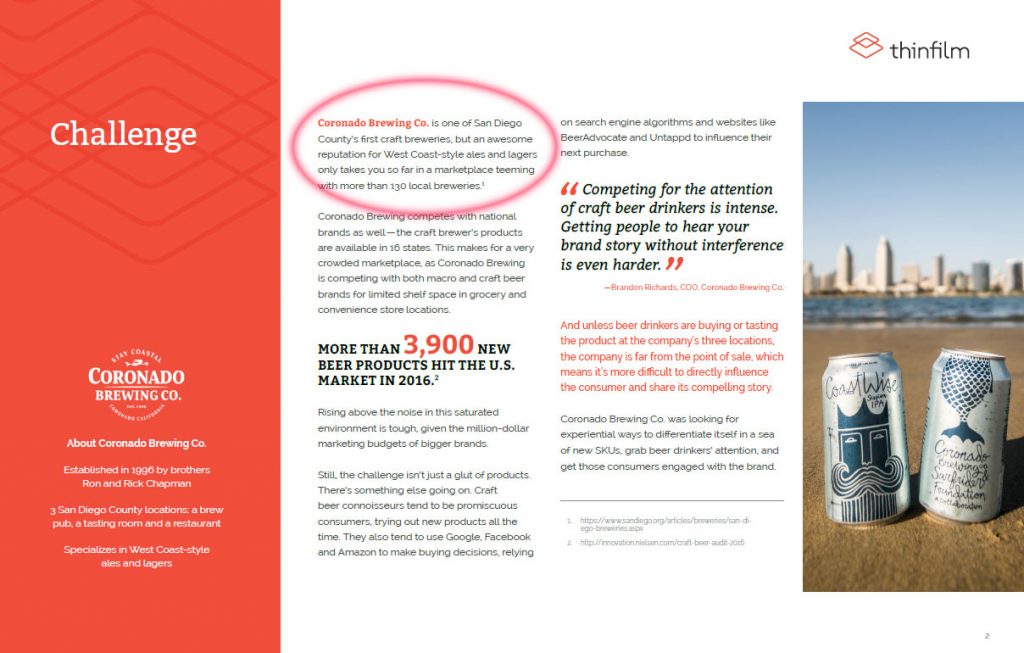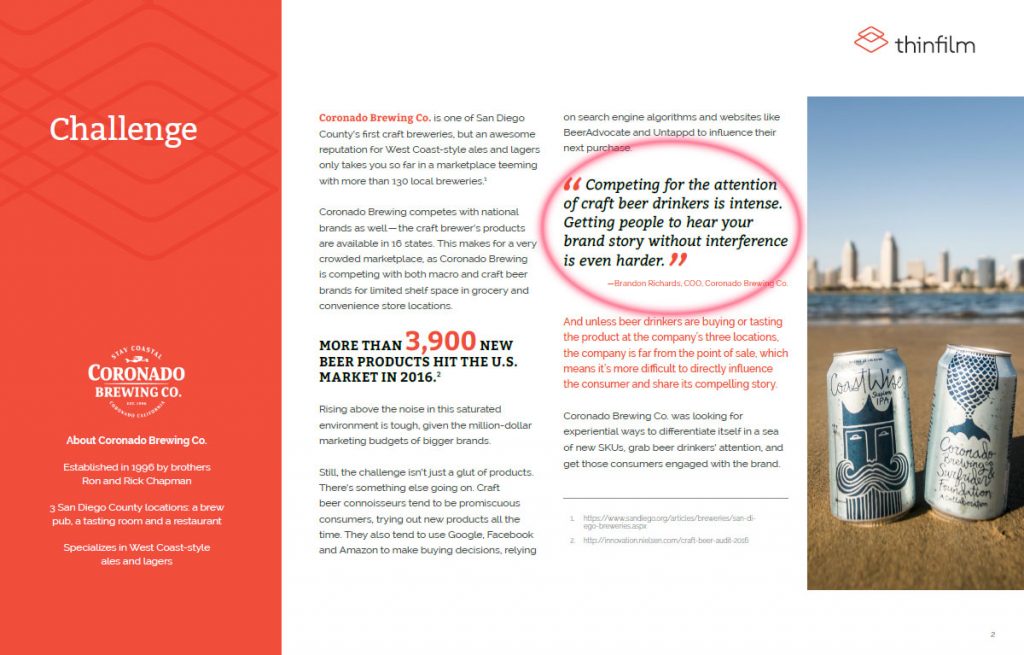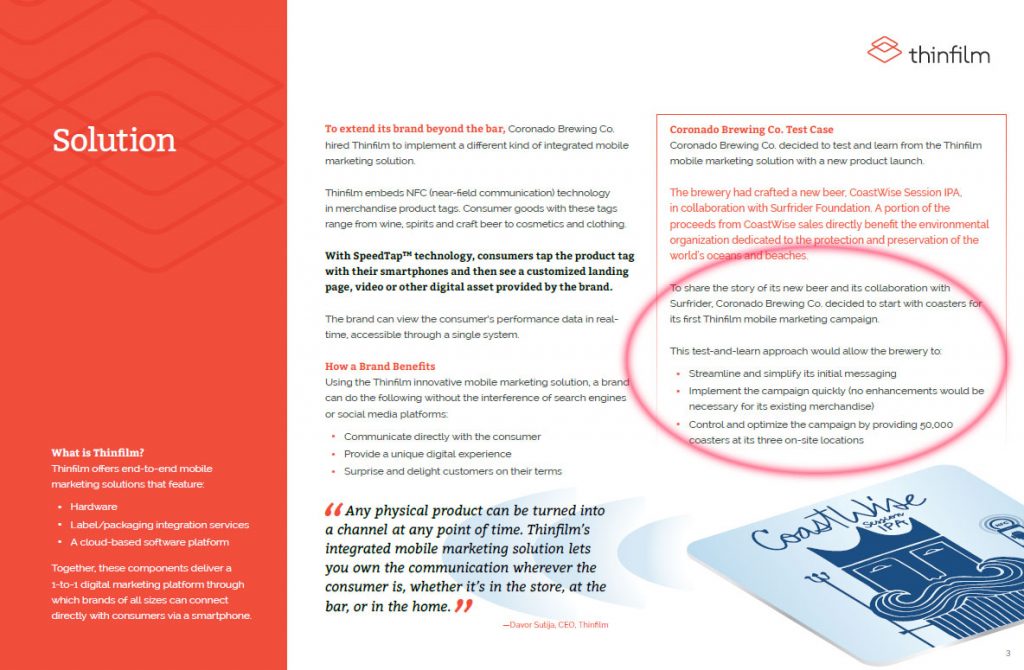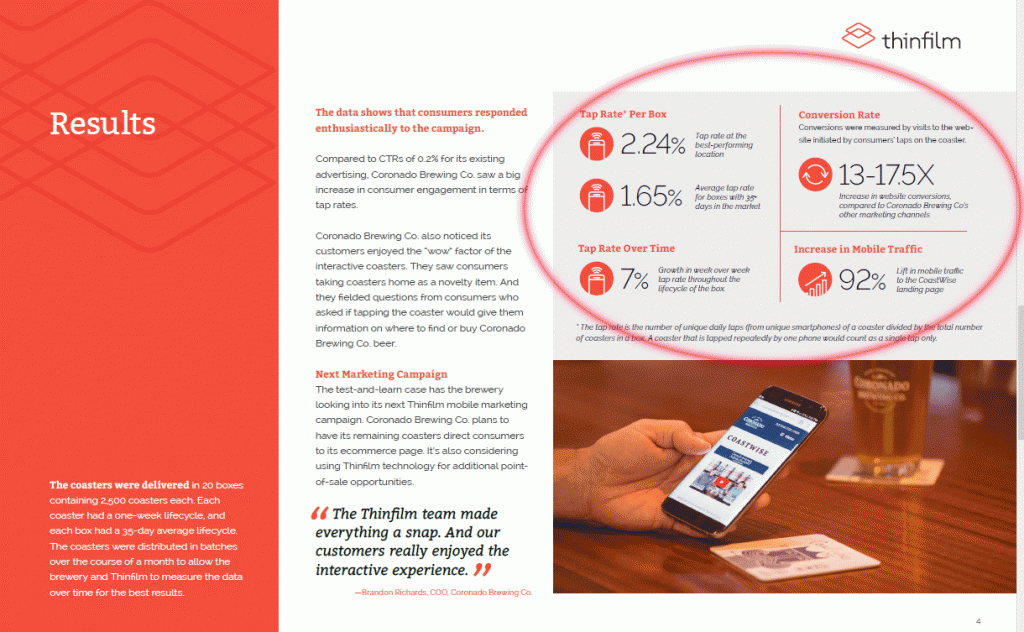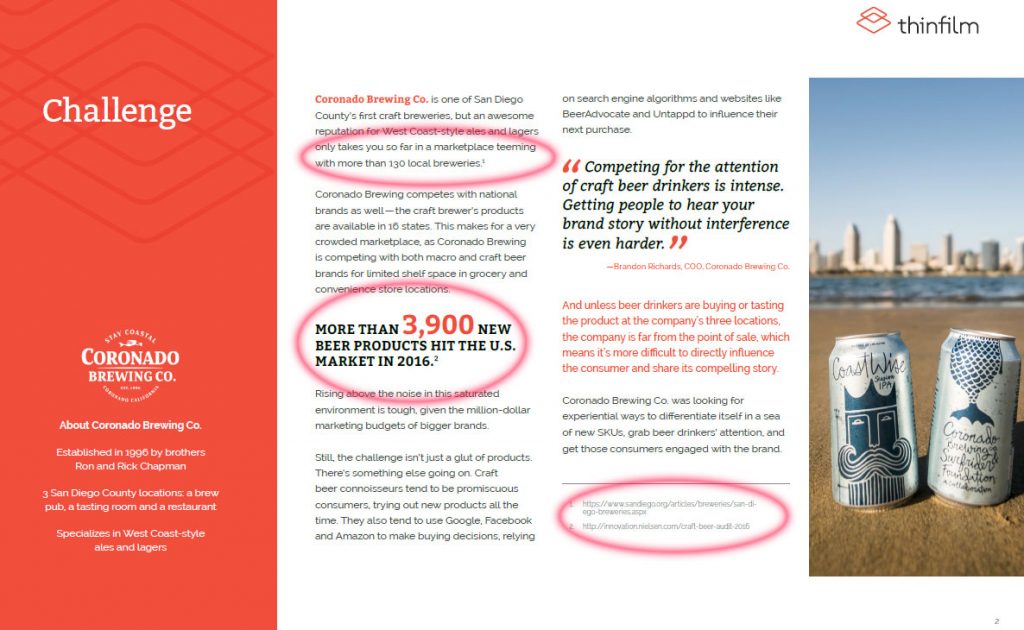5 Tips for Writing Great B2B Case Studies

5 Examples of Great Case Studies You’ll Want to Emulate
April 11, 2018
8 Tips to Help Executives Prepare for the Interview
July 25, 2018Great B2B case studies are business success stories that illustrate a client’s positive experience with your product or service. Over time, I’ve compiled a few writing tips that help make case studies shine.
Let’s analyze these tips by looking at an actual case study about a mobile marketing solution used by a brewery. I wrote this case study for VSSL (formerly Digital Style), an agency I support.
1. Straight-forward copy
While a case study is a marketing tool, it’s not fluff. It should read like any other article that you would read online, written in a journalistic, engaging style.
It should not sound like a used-car salesman (no offense to used car salesmen).
Case study example
Take a look at how this case study begins. It’s simple, direct, and quickly spells out the problem.
Coronado Brewing Co. is one of San Diego County’s first craft breweries, but an awesome reputation for West Coast-style ales and lagers only takes you so far in a marketplace teeming with more than 130 local breweries.
Coronado Brewing competes with national brands as well — the craft brewer’s products are available in 16 states.
Doesn’t that sound like a story you’d read anywhere? It doesn’t sound the alarm that you’re reading a marketing piece, and that’s a good thing.
You can see how this copy appears in the image below.
2. Your client’s authentic voice
The client you’ve selected to speak about your service or product is your greatest cheerleader. Capture the client’s voice in actual quotes.
Think about it. If it’s just you talking about your product or service, not clients who have used it, then your claims may not be as convincing to a potential client. It’s the same reason that businesses use testimonials or post client logos on their websites. It shows that clients will vouch for your work.
Case study example
The primary source for the brewery case studies is quoted throughout the story. But making a quote pop is eye-catching, too.
Here’s one of the quotes we pulled out of the copy:
“Competing for the attention of craft beer drinkers is intense. Getting people to hear your brand story without interference is even harder.”
It sums up the challenge the client faced, in a way that he naturally expressed it.
3. Benefits
A case study should always show the benefits of a product or service, not just the features.
You want your potential clients to understand how your product or service can help improve their business by:
- Saving money or time
- Streamlining processes
- Making more sales, etc.
In other words, don’t just say you did X and assume your readers understand the significance.
On a lot of B2B websites, whether it’s companies that do website redesign or structural engineering, I see a lot of project overviews incorrectly categorized as case studies. Project overviews provide details of what occurred, e.g., creating a responsive website with social-sharing buttons.
To make it a case study, you have to explain the benefits of your service or product. How did it help your client?
Case study example
In this case study, we had to explain the solution, e.g., the technology and its features, such as near-field communication embedded into coasters and the ability to track “taps” via consumer smartphones. But we also had to show the benefits of that technology, which came down to consumer engagement and website conversions.
The solutions page, as well as the results page, is devoted to making that case, but I’d like to highlight one area in particular so you can see that we’re balancing features (the technology) and benefits (what the client got out of using the technology):
To share the story of its new beer and its collaboration with Surfrider, Coronado Brewing Co. decided to start with coasters for its first Thinfilm mobile marketing campaign.
This test-and-learn approach would allow the brewery to:
• Streamline and simplify its initial messaging
• Implement the campaign quickly
• Control and optimize the campaign by providing 50,000 coasters at its three on-site locations
You can see where this copy appears below.
4. Data
Using data to back up claims is compelling.
If a product helps someone save time, how much time? If it saves someone money, how much money? Data matters, whether it’s big numbers or as simple as saving an employee a few hours on a project each month.
Case study example
Data is used throughout this case study. The image below, however, shows it can be designed for readability. When I write a case study in Word, I write with design elements in mind, even if it’s a simple table. The designer then takes it to the next level.
5. Research (bonus)
Citing applicable research from respected authorities in the industry adds credibility and context to your case study and findings.
It’s not always necessary, but it helps back up the argument you’re making that a problem exists for your potential clients, that it’s well documented, and that there’s a need to solve it.
Case study example
There are two pieces of outside research we used in the brewery case study. One is the number of breweries in San Diego County. The other is the number of new beer products launching annually. Both items help reinforce the challenge faced by the client
The designer of this case study put the citations in footnotes, to streamline the look and keep the little details out of the way.
Ready to write your own case study?
Now that you’ve got those five tips for writing great B2B case studies, are you ready to get started? Good for you!
If not, maybe it’s time to engage a writer. Feel free to contact me.


